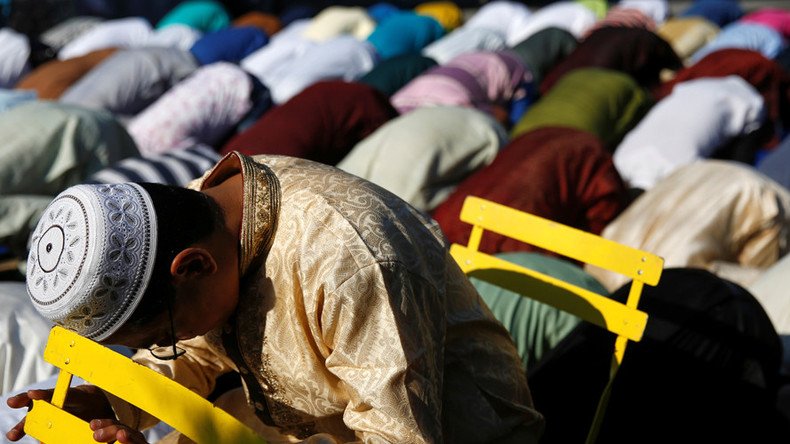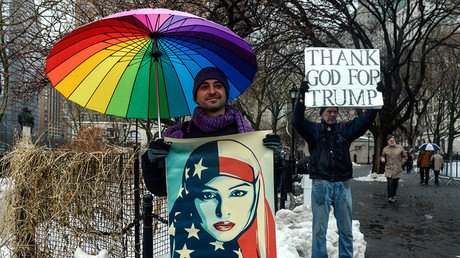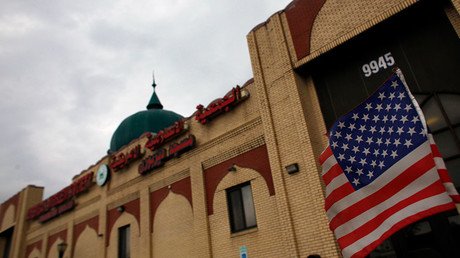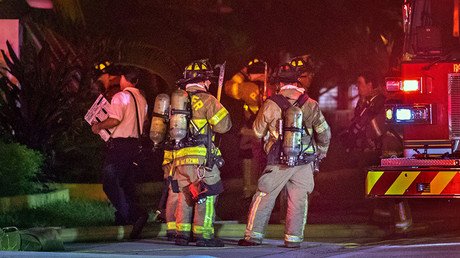Michigan residents sue city over mosque approval

A newly-filed federal lawsuit on behalf of residents in Sterling Heights, Michigan, is the latest chapter in a fight over the proposed construction of a mosque in a residential area of the suburban Detroit city.
The lawsuit comes three weeks after the city of Sterling Heights settled two lawsuits – one levied by the US Department of Justice – that challenged the city's rejection of a new mosque.
The suing residents, which include a group of Chaldean Christians and a city planning commissioner, said in the lawsuit that the city ignored their objections over the mosque's construction proposal while acting with favoritism toward Muslims, the Detroit News reported. Plaintiffs said a major issue centers around zoning restrictions in the residential neighborhood where the American Islamic Community Center (AICC) plans to build its 20,500-square-foot mosque. The plaintiffs claim religion is not their reason for the lawsuit.
"Very few people watching tonight would want a giant 60 feet mosque plopped down across the street in this residential neighborhood," the plaintiffs' attorney, Robert Muise, told WJBK.
The lawsuit's language, however, denounces Sterling Heights city officials for apparent favoritism toward Muslims.
"A reasonable observer would conclude that this favors the adherents of Islam over those who are not adherents of Islam," the lawsuit states.
The new suit, filed by the American Freedom Law Center, comes in response to a February 21 decision by city officials to settle two lawsuits that challenged the city's September 2015 decision to deny a special approval land use application for the mosque.
In August 2016, AICC sued the city over the denial, calling the rejection unconstitutional, while the US Department of Justice added its own lawsuit against the city in December. Both federal lawsuits alleged that the city violated the Religious Land Use and Institutionalized Persons Act, a federal law designed to shield religious institutions or individuals from discrimination in zoning law. The Justice Department suit challenged "unnecessary burdens" on the mosque's construction.
The settlement aimed to resolve issues related to parking, traffic congestion and the size of the mosque, according to reports. The federal consent decree the city entered into means mosque construction could begin as soon as this summer.
Opponents of the mosque's construction, however, have said the city ignored their concerns, especially during the city council meeting that involved consideration of the settlement. Plaintiffs in the new lawsuit said the city's mayor, Michael Taylor, restricted their public comments during the meeting and cleared the room for a vote on the settlement.
"The actions of the city, through its mayor, directly censored speech or had a chilling effect on speech…," the lawsuit states.
Neighborhood opponents of the mosque have said they are afraid traffic will increase and their property values will decrease once the mosque is built.
Attorney Muise said the settlement "circumvented the zoning ordinances" and "circumvented the protections provided to neighboring property owners."
While some opponents have admitted they are motivated by anti-Muslim bias, Muise said the lawsuit is not about religious discrimination, but, rather, zoning laws and opponents' First Amendment rights to be heard by their public officials.
"The fact that other private citizens might make public comments can't be attributable to the government, that is their right to free speech," Muise said, according to WJBK. "I know people want to shut down any criticism of Islam at these public meetings but you can't do that under the First Amendment."
















